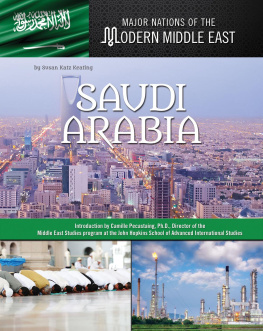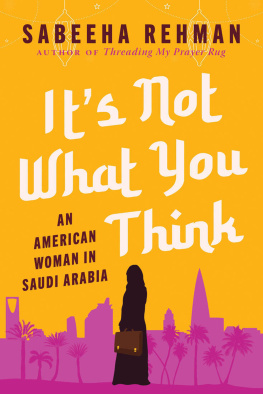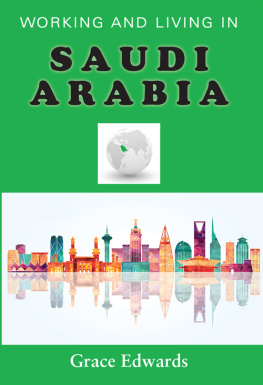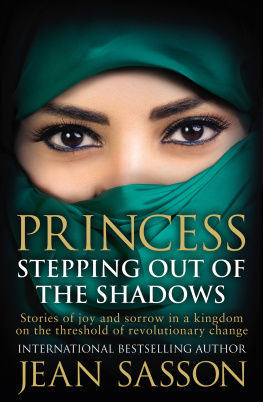TO BE PROOFREAD
Title:
The Consequences of Love
Author:
Sulaiman Addonia
Year:
2008
Synopsis:
As a corrective to Rajaa Alsaneas recent novel Girls of Riyadh, Sulaiman Addonias affecting debut provides a glitz-free version of romance, Saudi Arabian-style. Its the summer of 1989 and Nasser, a 20-year-old refugee from Eritrea, fritters away his days dreaming of his lost mother.
The women of Jeddahuntouchable, shrouded figurescan offer little in the way of comfort. Then one day Nassers luck changes when a girl, wearing bright pink shoes, drops a love letter at his feet.
So begins a courtly love affair carefully conducted out of view of the religious police, and just yards away from Punishment Square. Medievalism and modernity collide in this tender-hearted and reader-friendly first novel.
1
W HATEVER DREAM I had for myself in the future, my mother was always central to it. But now that dream was escaping my grasp. She was sending me away: me, a ten-year-old, and my brother, only three.
We were in a makeshift caf at the armpit of the river. At the side of the hill lay a bush and in the bush was a hidden route from our village in Eritrea to east Sudan; a route that was so narrow and arid that it could only be travelled by camel.
Some of the smugglers had already arrived. I watched the flickering oil lamps bounce against the flanks of their camels. There were many people standing around, but not everyone was there to flee the war. Some, like my mother and the other women who lived on Lovers Hill were there to say goodbye. But most, like my brother and I, were there to escape. My mother was all I had in the world, and I dreaded the moment the oil lamps would be blown out and the camels would set forth in the bush to begin our journey. The world I had known and loved so much would be over.
I was standing next to Semira, my mothers best friend. My mother was just a few yards away buying warm milk for Ibrahim from the tea maker, with her back towards me. The tea maker scooped milk from her pot and put it in a tin cup and gave it to little Ibrahim.
More camels arrived. The men were walking behind the camels, hitting them now and then with a long stick. They were famous smugglers, Beja men from the Beni Amir tribe.
They all had knotted hair and were wearing white jallabiyahs with blue waistcoats; swords swung over their shoulders.
My mother came back towards where I was standing with Semira. It was strange that there werent many tears now. EveryoneSemira, my mother and even meseemed to have cried all day long and now the only thing left to do was say goodbye.
As I saw my mother approaching, I looked at her face. She was wearing a long black dress and her favourite red Italian-made shoes, a gift from Semira. My mother was tall but the shoes made her even taller.
When she came by my side, she gave Ibrahim to Semira and held my hand. Semira joined the other women who were waiting close to the camels and the light of the oil lamps, waiting to say goodbye to us.
Suddenly I heard a loud thundering noise. I looked up at the sky and saw an Ethiopian fighter plane over our village. I squeezed my mothers hand and pressed my head against her. I closed my eyes, and said a prayer, Please ya Allah make these planes go away for ever. Please ya Allah. Please ya Allah
When quietness returned to the sky, one of the smugglers came to my mother and said, The camels are ready, Raheema. Dont worry. Nothing will happen to your children.
My mother picked up our oil lamp. She clutched my hand and started walking towards the caravan. But I pulled her back, planting my feet firmly in the sand. I am not moving, Mother.
She stooped in front of me. Her earrings dangled and swung in the breeze. A beautiful odour arose from her neck like swirls of frankincense gum from an incense burner. I looked at her long black hair. I rested my head on her chest.
She wrapped her arms around me. I wished I could stay like this for ever.
My mother whispered, My sweetheart, I am doing this because I love you.
I begged her one more time, Please, Mother, dont send us away. I want to stay here with you. Please, Mother.
She gently pulled herself away, and said, I want to look at you, my sweetheart.
She held my face.
Lets make a promise to each other, she said in a soft breaking voice, the silent tears rolling down her cheeks.
Lets make a promise that we will always be like this wherever we are. She wove her fingers between mine and bowed her head to kiss my hand.
The smugglers made their final call for our departure. I hugged my mother and her oil lamp fell to the ground, lighting her red shoes in the darkening night.
As the camels started walking, I looked up at her face. I wanted to see it for the last time. But the light at her feet died slowly and my mother disappeared from view.
PART ONE
THE BLACK AND WHITE MOVIE
2
T HE EVENING OF the second Friday in July was an evening of departures. It was 1989 and Jeddah was about to be abandoned by all of those who could afford a holiday. I had left my window open to let the humid breeze into my room. I breathed in the spicy kebsa meat mixed with the spice of mens cologne; the smells of the day turning into night.
The phone was ringing. After six rings I picked up. It was Jasim. He wanted me to come to the caf to say goodbye. He was off to Paris the following day. He regularly travelled abroad and always came back from his trips with presents; he claimed they would encourage sensuality in those he loved.
He also said that I needed to collect the latest of my letters to my mother. I had tried many times to send letters home but they were always returned to sender. I had used Jasims caf as my return address ever since I had known him.
At that time I lived in a tiny flat in a small two-storey building. It was all I could afford, given that I was earning just four hundred riyals a month at the car-wash. The flat was at the poor end of a long street that swelled at the middle, like a man with a big belly and long thin legs. At the roundabout it was surrounded by shops and restaurants, before it stretched thin again all the way to Kharentina.
By day, its rows of white-painted buildings glistened under the sun and men in white thobes outnumbered women in black abayas. The scene made you feel like you were in an old black and white movie.
I walked past the villas, where the breeze had turned the garden trees into slow-moving ballerinas. Peering down Al-Nuzla Street, I could see the tallest building of our neighbourhood. It stood out because of its nine floors and was well known for the rich people who lived in it.
In front of me, on the pavement, two young men were strolling, holding each others hands. They made their way into the Yemeni shop. A few moments later I stopped to let a man past, dressed in jallabiyah and tagiyah and carrying a box full of plastic Pepsi bottles. I tucked my Tshirt into my tracksuit and continued.
The fragrance of musk filled my nostrils. It meant I was getting close to the biggest mosque in the neighbourhood. At one time I had been living with my uncle right next to the mosque; my new home was a few blocks away in the same street, but this mosque was still the nearest.
I saw a group of six bearded men standing outside. They stood so close to each other that they looked like they were joined at the hips and shoulders.
They stepped aside to give way to the blind imam who was leaving the mosque. It was because of him that I no longer attended prayers. He was clutching the arm of a tall man who was holding a black leather bag. Their long beards quivered softly in the wind.
Next page






